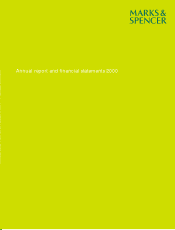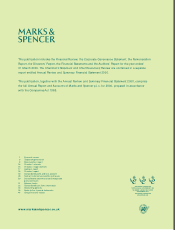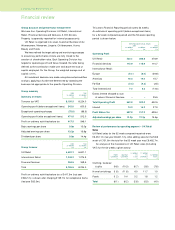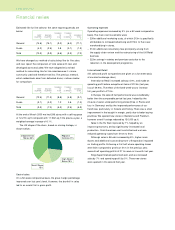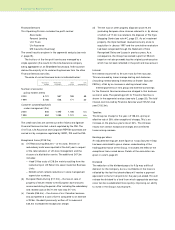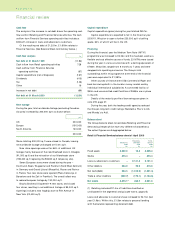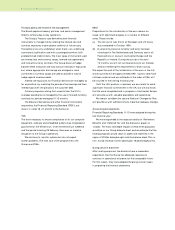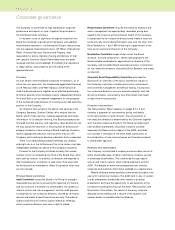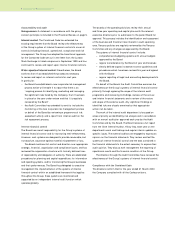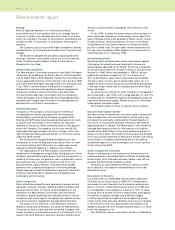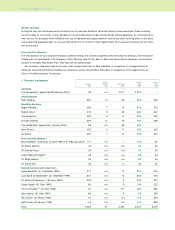Marks and Spencer 2000 Annual Report Download - page 7
Download and view the complete annual report
Please find page 7 of the 2000 Marks and Spencer annual report below. You can navigate through the pages in the report by either clicking on the pages listed below, or by using the keyword search tool below to find specific information within the annual report.
Treasury policy and financial risk management
The Board approves treasury policies, and senior management
directly controls day-to-day operations.
The Group’s Treasury uses derivatives and financial
instruments to manage risk by altering the interest rate and
currency exposures to give greater certainty of future costs.
Transactions are only undertaken when there is an underlying
commercial justification and with counterparties which fulfil
predetermined credit criteria. The main types of instrument used
are interest rate and currency swaps, forward rate agreements
and forward currency contracts. The Group does not hedge
balance sheet and profit and loss account translation exposures
but, where appropriate, borrowings are arranged in local
currencies or currency swaps are used to provide a natural
hedge against overseas assets.
Interest rate exposures for Financial Services are managed, as
far as practical, by matching the periods of borrowings and their
interest basis with the periods of the customer debt.
Currency exposure arising from exports from the UK to
overseas subsidiaries is managed by the use of forward currency
contracts for periods averaging 10-15 months.
The details of derivatives and other financial instruments
required by the Financial Reporting Standard, FRS13, are
shown in notes 18, 21 and 23 to the Accounts.
Y2K
The work necessary to ensure compliance of all our computer
equipment, software and embedded systems was completed in
good time for the Millennium. Over the Millennium weekend
and the period covering 29 February there was no material
disruption to the Group’s operations.
We continue to monitor systems but do not expect
further problems. The total cost of the programme to the
Group was £25m.
EM U
Preparations for the introduction of the euro remain on
target, with significant progress in a number of different
areas. These include:
(a) The roll-out of new tills to all European and UK stores
was completed in October 1999.
(b) Dual pricing (national currency and euro) has been
introduced in The Netherlands and Germany and in all
Food sections in stores in Continental Europe and the
Republic of Ireland. During the course of the next
12 months, we will roll out dual pricing to our General
sections reflecting the requirements of each country.
We expect the cost of the introduction of the euro in the first
wave countries will be approximately £9m. Costs to date have
not been material and we anticipate in the order of £5m will
be incurred in the coming financial year.
Until the UK’s position is resolved, we are careful to avoid
significant financial commitment in the UK, but we also know
that the work completed and in progress in Continental Europe
will provide us with valuable precedents and experience.
We remain confident the second National Changeover Plan
will provide us with sufficient time to make the necessary changes.
Accounting developments
Financial Reporting Standards 11-15 were adopted during the
last financial year.
We have responded to the exposure drafts on ‘Retirement
Benefits’ and ‘Deferred Tax’ and the discussion paper on
‘Leases’. The most noticeable impact of these three proposals
would be on our Group balance sheet, and we estimate that the
leasing proposals would result in assets and liabilities in the
region of £0.9bn being brought onto the balance sheet. This, in
turn, would increase current gearing by 18 percentage points.
Going concern statement
After making enquiries, the directors have a reasonable
expectation that the Group has adequate resources to
continue in operational existence for the foreseeable future.
For this reason, they have adopted the going concern basis
in preparing the financial statements.
5Annual Report and Financial Statements 2000

